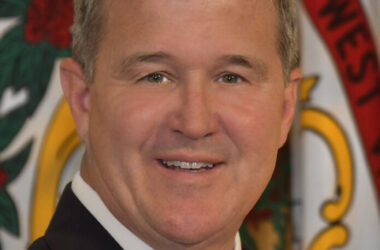An editorial from The Journal
MARTINSBURG, W.Va. — A devout Christian baker being asked to make a cake for a same-sex couple. A Muslim woman being asked to remove her hijab at the Department of Motor Vehicles.
These are examples of someone’s religious beliefs and “freedoms” being questioned. Now, is asking ordained pastor Sen. John Unger, D-Berkeley, to attend a Sunday session of the state Senate a violation of his freedoms? Perhaps that’s pushing it.
It can be reasonably assumed that Unger’s injunction to prevent a Sunday session is “political gamesmanship,” as state Senate President Bill Cole, R-Mercer, called it. But is it an “embarrassing” display of a lack of respect for the Legislature, as Cole also said? Or is it simply a sign of what’s to come if the Religious Freedom Restoration Act is passed?
Paramount among Unger’s reasons for his legal action, we think it’s safe to believe, is to shine a light on the litigious future the state may face under a vague RFRA rule such as HB4012. Could a Hasidic Jew file a complaint stopping a city from allowing a non-kosher deli to open in his neighborhood, because the smell of bacon offends his nostrils? Could a Jehovah’s Witness argue that his child’s elementary school should no longer celebrate other kids’ birthdays, as it makes the child question his family’s religion?
These are extreme examples. But the possibility exists, as Unger’s “gamesmanship” shows.
Senate Majority Leader Mitch Carmichael, R-Jackson, said Thursday that legislators “are not heathens for working on Sundays.” And while most of the Senate – and probably most of West Virginia – would agree, the question isn’t about what Carmichael thinks. It’s about what a devout Christian, adhering closely to the words of the book of Exodus, could argue under the Religious Freedom Restoration Act.
“Six days work shall be done, but on the seventh day you shall have a Sabbath of solemn rest, holy to the Lord. Whoever does any work on it shall be put to death.” (Exodus 35:2)
We certainly aren’t advocating for that punishment, and neither is Unger. But those are some strong words. And it’s that type of reading of any religious text that legislators need to take into account as they further discuss the RFRA.
Unger is bringing this to light through his unorthodox method. We hope legislators take note and think twice before passing this bill.





